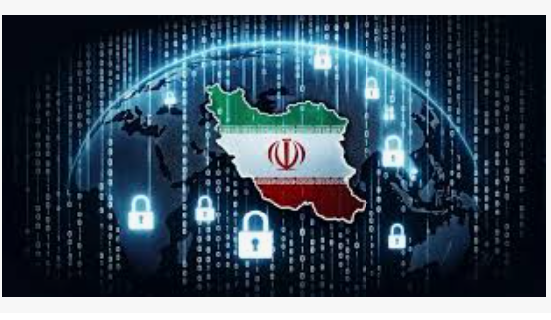Amid escalating Middle East tensions, Iran faced major cyberattacks Saturday, disrupting its government branches and targeting nuclear facilities. The massive cyberattack followed Israel’s pledged response to Iran’s October 1 missile barrage, as regional conflicts intensified in Gaza and Lebanon.
Abolhassan Firouzabadi, former secretary of Iran’s Supreme Council for Cyberspace, told local media Iran suffered a cyber attack. Firouzabadi also added that threat actors stole sensitive information from targeted infrastructure. “Nearly all three branches of Iran’s government – the judiciary, the legislature, and the executive branch – have been hit by heavy cyberattacks, and their information was stolen,” said Firouzabadi, the former secretary of Iran’s Supreme Council of Cyberspace, was quoted as saying by the Iran International. “Our nuclear facilities have also been targeted by cyberattacks, as well as networks like fuel distribution, municipal networks, transportation networks, ports, and similar sectors. These are just part of a long list of various areas across the country that have been attacked,” he added.
Iran said on Sunday that it has “no red lines” in defending itself, as the Middle East anxiously braced for Israel’s response to missile attacks from its arch-foe two weeks ago. Israeli Defence Minister Yoav Gallant has said Israel will hit Iran in a way that will be “lethal, precise and surprising”.
The Middle East remains on high alert for further escalation in a year of war as Israel battles Iran-backed groups Hezbollah in Lebanon and Hamas in Gaza.
U.S. officials believe Israel has narrowed down targets in its potential retaliation for the Iranian missile barrage, and would aim to hit military and energy infrastructure, NBC reported on Saturday. It said there was no indication Israel would target nuclear facilities or carry out assassinations in Iran. The NBC report cited unidentified U.S. officials and added that Israel had not made final decisions about how and when to act. It also cited U.S. and Israeli officials as saying a response could come during the Jewish Yom Kippur holiday. The holiday ended on Saturday evening without an Israeli strike.
If Israel were to damage Iran’s most critical oil assets, it could remove nearly 2 million barrels per day from the global oil market, leading some traders to speculate about a return to three-digit oil prices. The oil price last crossed the $100 mark shortly after Russia launched its full-scale invasion of Ukraine in February 2022.
“If you [Israel] take out oil Installations in Iran, easily you [oil prices] could go to $200 plus,” Bjarne Schieldrop, chief commodities analyst at Swedish bank SEB, told US broadcaster CNBC last week.
The exports of Iran, one of the world’s largest oil producers, are subject to harsh international sanctions as part of a protracted dispute with the West over Tehran’s nuclear ambitions. Despite this, Iranian oil exports hit a five-year high of 1.7 million barrels in May, according to energy analytics firm Vortexa. About 90% of its oil is delivered to China, much of it illicitly, through Tehran’s so-called ghost fleet of nearly 400 tankers that disguise their movements to breach the sanctions.
“The Iranian economy is hugely dependent on the revenues it generates from its oil exports,” Carole Nakhle, CEO of the London-based consultancy Crystol Energy, told DW. “Any disruption to those revenues will have severe impacts on the economy.”
